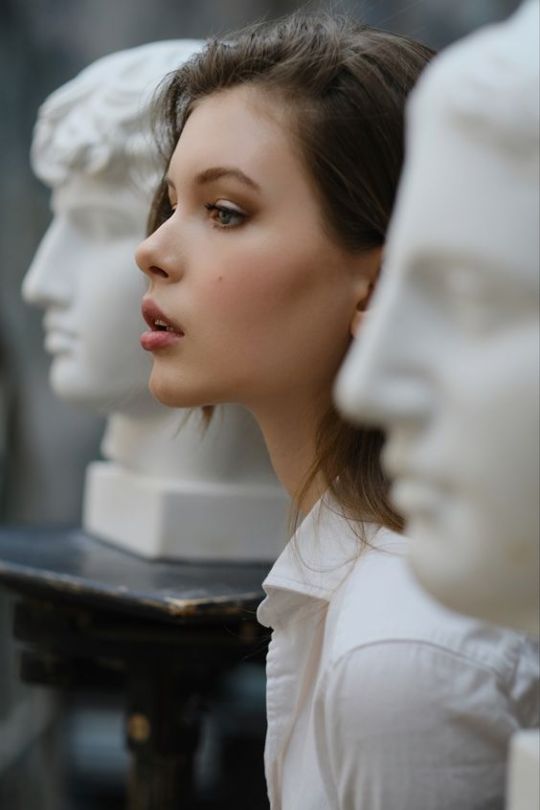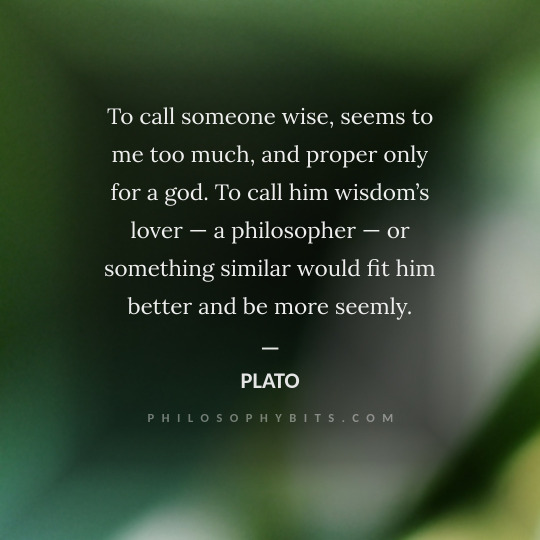#phaedrus
Photo

Quicumque amisit dignitatem pristinam, ignavis etiam iocus est in casu gravi.
- Phaedrus
Whoever has lost his ancient dignity Is a joke to baser men in the midst of grave mistake.
#phaedrus#latin#classical#quote#dignity#tradition#custom#identity#femme#statue#beauty#heritage#western society#values#culture#civilisation
195 notes
·
View notes
Text
Wolfstar (specifically remus) is so Plato’s-philosophy-on-beauty-and-love coded
(remus genuinely feels like sirius’ beauty physically heals his soul and brings him closer to god)
#the#phaedrus#is my roman empire#i’m gonna write a remus pov inspired by plato#remus is also socrates coded#marauders#james potter#regulus black#sirius black#remus lupin#wolfstar#atyd#plato#marauders fanfiction#marauders era#marauders hc
76 notes
·
View notes
Text
"Non semper ea sunt, quae videntur"
Phaedrus Augusti Libertus (around 15 BC - around 50 AD) Liber Quartus, De Mustela et Muribus I,5
"Things are not always as they seem"
Phaedrus Augusti Libertus
17 notes
·
View notes
Text
Love is a serious mental disease.
Plato, Phaedrus
#plato#Phaedrus#love#mental disease#quotes#litterature#poem#poetry#beautiful quote#book quote#love quotes
9 notes
·
View notes
Text
I have a doubt. So, I was rereading The Charioteer, and in this reread I'm focusing only on the parts with Ralph on it. After Ralph tells Laurie about how he's going to be moved to the other hospital and Laurie tells Ralph about Andrew, there's a moment in which they both lie on the rug in front of the fire while Ralph tells him some story about his time on the sea, and then comes this paragraph:
"The strange feeling of fulfilment touched Laurie again; suddenly he remembered and understood. In the weeks of that summer holiday seven years before, after he had read the Phaedrus by the stream in the wood, he had gone for long walks alone, and, returning, sat in the evening by a September fire, so silent and enclosed that more than once his mother had asked if he was well. It was of this that he had been dreaming."
I remember that afterwards, when Ralph's helping Laurie pack up his room after his mother's wedding, Laurie tells him to sit in a chair, and tells him that it's the chair he always sat on. Is he refering to that dream? Was 'Ralph' always sitting on that chair while Laurie fantasized about him after reading the Phaedrus by the stream in the wood? Because I never really understood the chair thing before. But within this context... I think it kind of make sense?
I would love to read your opinions in the matter, please!
16 notes
·
View notes
Text
Cool things in the Symposium which we don’t talk about enough:
- Aristophanes claiming all politicans are gay („Those who are cut from the male gender go for males…men like this are the only once who, when grown up, end up as politicians“)
- Them planning to play truth or dare („Once you’ve spoken, you can order Socrates to do whatever you want, and he can do the same to the person on his right and so on.“)
- lesbians („female homosexuals“)
- The moon as an Enby symbol („the parent of the…combined gender [was] the moon.“)
- Asexual Socrates („You see that Socrates is erotically attracted to beautiful boys…This behaviour is just his outer covering.“)
- Tips against hiccups („ your hiccups might stop if you hold your breath for a long time; if they don’t, gargle with some water. If they’re really persistent, get something to tickle your nose with, and make yourself sneeze.“) ((no seriously the water gargling one helps 99% of the time in my experience))
- Drinking being bad for you („It has become clear from my medical experience that drunkenness is harmful for human beings.“)
- Socrates getting all his knowledge from women (Diotima of Manitnea)
#the symposium#plato#Plato’s symposium#classics#ancient greece#tagamemnon#socrates#alcibiades#aristophanes#diotima#eryximachus#phaedrus#lgbtq history
156 notes
·
View notes
Text
Phaedrus Thoughts #4: Never mind the Phaedrus it's HG Wells we should be looking at
So I have been trying to work out what place The Phaedrus has in The Charioteer, but after re-reading the book a million times, I only just took the trouble to follow up on another literary reference that Laurie makes when talking about Charles and his parties. The Reference is to an HG Wells short story ‘The Country of the Blind’. I haven't read the story but looking at a synopsis, it looks like an allegory similar to Plato's story of the cave in 'The Republic'. It is about a man who accidentally finds a community of blind people, thinking he will be looked up to as a God, but instead finding that they simply view his ability to see as some kind of delusion. Pretty mind-blowing! And Laurie refers to it to explain his experiences with Charles and his friends. And maybe there is a parallel with Ralph and the knowledge he has to offer being rejected in turn by Laurie. Has anyone read this story? Any thoughts?
18 notes
·
View notes
Text

28 notes
·
View notes
Quote
A sick man takes pleasure in anything that does not resist him, but sees anyone who is equal or superior to him as an enemy.
Plato
#plato#phaedrus#quotes#life#wisdom#philosophy#ideas#sick men and women#sick#ancient greece#books#writer#writing#write#author
7 notes
·
View notes
Quote
The rich
will make temples for Śiva.
What shall I,
a poor man
do?
My legs are pillars,
the body the shrine,
the head a cupola
of gold.
Listen, O lord of the meeting rivers,
things standing shall fall,
but the moving ever shall stay.
Basavanna, ‘820.‘ in Speaking of Śiva, trans. A. K. Ramanujan.
omnia quae videntur perire mutari (Seneca, from Epistulae 36:11.)
❧
“Every soul is immortal. That is because whatever is always in motion is immortal, while what moves, and is moved by, something else stops living when it stops moving. So it is only what moves itself that never desists from motion, since it does not leave off being itself. In fact, this self-mover is also the source and spring of motion in everything else that moves; and a source has no beginning. That is because anything that has a beginning comes from some source, but there is no source for this, since a source that got its start from something else would no longer be the source. And since it cannot have a beginning, then necessarily it cannot be destroyed. That is because if a source were destroyed it could never get started again from anything else and nothing else could get started from it—that is, if everything gets started from a source. This then is why a self-mover is a source of motion. And that is incapable of being destroyed or starting up; otherwise all heaven and everything that has been started up would collapse, come to a stop, and never have cause to start moving again. But since we have found that a self-mover is immortal, we should have no qualms about declaring that this is the very essence and principle of a soul, for every bodily object that is moved from outside has no soul, while a body whose motion comes from within, from itself, does have a soul, that being the nature of a soul; and if this is so—that whatever moves itself is essentially a soul—then it follows necessarily that soul should have neither birth nor death.” (Plato, from Phaedrus, 245c-245e, trans. Alexander Nehamas and Paul Woodruff)
❧
“6.23 The Master said, “The wise take joy in rivers, while the Good take joy in mountains. The wise are active, while the Good are still. The wise are joyful, while the Good are long-lived.”
commentary: This is a famously cryptic passage. A somewhat neo-Daoist-flavored interpretation of the first two lines is provided by Bao Xian: “The wise take joy in actively exercising their talent and wisdom in governing the world, just as water flows on and on and knows no cease. The Good take joy in the sort of peace and stability displayed by mountains, which are naturally nonactive and yet give birth to all of the myriad things.” The precise meaning of the last line is particularly problematic. It is unclear why only the wise (and not the Good) should be joyful, for instance. As for “the Good are long-lived” statement, some commentators attempt to reconcile it with the premature death of Yan Hui by understanding it metaphorically: it is the reputation or beneficial influence of the Good person is long-lived. Others reject this strategy, arguing that—the isolated counter-example of Yan Hui aside—the Good are long-lived because they are calm and free of desire for external things. All of these interpretations are quite speculative.” (Confucius, from Analects: With Selections from Traditional Commentaries, trans. Edward Slingerland)
❧
“The world is but a perennial see-saw. Everything in it—the land, the mountains of the Caucasus, the pyramids of Egypt—all waver with a common motion and their own. Constancy itself is nothing but a more languid rocking to and fro. I am unable to stabilize my subject: it staggers confusedly along with a natural drunkenness. I grasp it as it is now, at this moment when I am lingering over it. I am not portraying being but becoming: not the passage from one age to another (or, as the folk put it, from one seven-year period to the next) but from day to day, from minute to minute. I must adapt this account of myself to the passing hour. I shall perhaps change soon, not accidentally but intentionally. This is a register of varied and changing occurrences, of ideas which are unresolved and, when needs be, contradictory, either because I myself have become different or because I grasp hold of different attributes or aspects of my subjects. So I may happen to contradict myself but, as Demades said, I never contradict truth. If my soul could only find a footing I would not be assaying myself but resolving myself. But my soul is ever in its apprenticeship and being tested. (Michel de Montaigne, from ‘III.2. Of repenting’ in The Complete Essays, trans. M. A. Screech)
7 notes
·
View notes
Text
"Over the dark still well of Life he leaned, and through that deep cool water, ruffled gently by the soft warm breath of youth, the face of Love himself arose, his hair streaming back like a flame, his sad grey eyes full of an infinite pity.
And he began to dream of an immortal love which, though unable to realise itself perfectly in this world, yet might be strong enough to draw two souls together, after death, in some far heaven. Far! But in truth it seemed quite near just now:—was here, a soft radiance, in his own spirit, in the warm air that blew about his face, in the sunlight, in the trees, in the voices of his playmates. Only afterwards—afterwards there would be that untroubled and perfect communion which hovered now before him as an unattainable ideal, a light behind the clouds, a flame on the horizon; ‘for then, and not till then, the soul will be parted from the body and exist in herself alone.’ "
Graham Iddesleigh experiences Plato's Phaedrus.
— Forrest Reid, The Garden God (1905)
#the garden god#forrest reid#plato#phaedrus#gay literature#lgbt literature#lgbtq literature#gay fiction#quotes#books#booklr
4 notes
·
View notes
Text
ok so im writing this paper on plato and its going alright-ish, perhaps too slowly, but ill manage. its about piety and music, and how socrates making poems is actually him praying to apollo and or the muses, and how the divine madness is the object of the trade between gods and men from euthyphro. the gods give divine madness and people use it to worship the gods. does that make sense? any pagans here have an opinion?
#Phaedo#plato#crito#euthyphro#apology#socrates#dark academia#shitpost#phaedrus#apollo#hellenic religion#paganism#hellenic pagan#hellenic paganism#divine madness
10 notes
·
View notes
Audio
Listen/purchase: Twin Quasar (feat. Hilyard) by Dronny Darko & Phaedrus

5 notes
·
View notes
Text
We are each, at our core, a one, and the flower at the core of us is always connected to the God we are suspended from; we are, at our periphery, dazzled by and participating in the amalgam of divine delights, a reflection in water of the Gods’ shared feast in the Phaedrus.
2 notes
·
View notes
Text
Random Phaedrus thoughts #3
OK so slightly cheating here, but.....what is the first thing Ralph does after Laurie thanks him for giving him the Phaedrus? Leave a couple of 'new novels' for him at the hospital. Got to get him off that diet of Plato pronto......
5 notes
·
View notes
